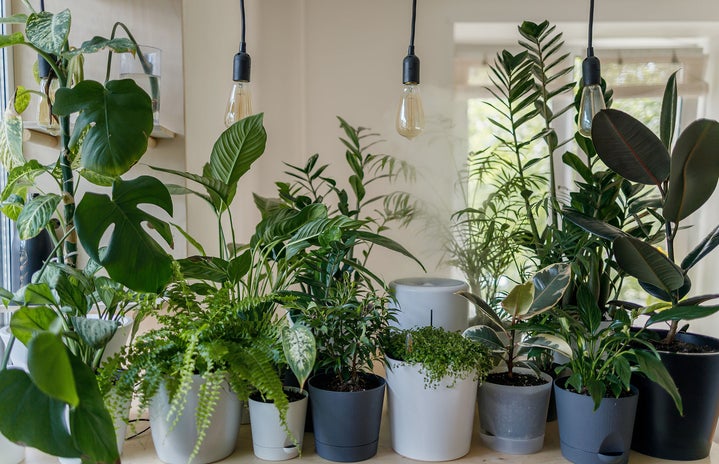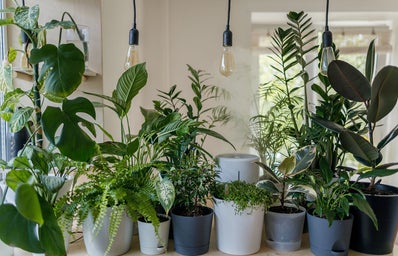The sun is slowly coming out, and the rain showers are pouring down. You can smell it in the air. That thick dewy scent hovering over you as you walk around campus adorned by the fleeting aroma of hyacinths. Spring has arrived.
The signal of spring’s arrival indicates that winter has finally pried its cold hands off your surroundings. However, your indoor plants indicate that like winter, you were hands off and quite cold to them. It’s the cycle of dorm plants every season; you buy them in the fall and forget about them all winter. Then spring comes around, reminding you of how lively your plants once were.
And it’s a good reminder because there are many options for you to bring that life back to your surroundings. Plants are known to improve air quality indoors and improve overall well-being. Many people find stress relief in the symbiotic relationship that comes with caring for plants. As you help them bloom, they add to your space and mindfulness. Exploring this relationship with your plants could be beneficial for your mental health while navigating stressful academic and social environments.
Some great plants to consider adding to your space are snake plants, spider plants or succulents. These plants do not need much attention to grow beautifully; they can still thrive, even when neglected. Spider plants and snake plants adapt well to low-lighting and infrequent watering. While succulents do not need frequent watering, they thrive on direct sunlight. All these plants are great options to improve your dorm that do not require diligent care.
In an effort to protect this newfound relationship with your plants, there are some things to look for when caring for plants. If you’re considering whether or not to water your plants today, testing the soil could be a helpful tip. Does the soil still feel wet? If so, maybe leave watering for another day. There are many indicators plants display to let you know about their current condition. For example, yellow leaves could indicate that your plant is getting too much, or too little water. Wilting is another sign that your plant is lacking sufficient water. These indications will help to mitigate the damage inflicted on your dorm plant. However, it is important to research information about your specific species so that you can properly care for it.
As spring continues to bring many rain showers and blooming flowers, you should consider bringing some of that joy into your room. Take my advice about this eco-friendly way to spruce up your dorm. You may just find yourself experiencing the many benefits that it can entail!


